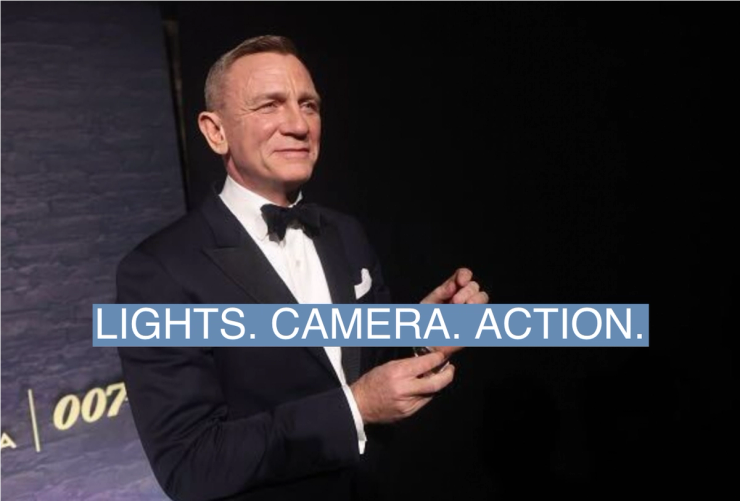The Scoop
Daniel Craig is looking for money in the desert; the financiers in the desert want Bond.
It sounds like a half-baked pitch for the next 007 film. In fact, it’s the reality of the present-day film industry: The British movie star is trying to secure financing for a passion project, a version of Shakespeare’s Othello, set in an American barracks in Iraq, from Middle Eastern governments including Qatar, according to people briefed on discussions.
In the background, though, is a more tantalizing prize for the Gulf, and in particular Qatar, which has been investing heavily in the movie business and pushing Doha as a destination for Hollywood productions. Craig has secured backing for Othello from Barbara Broccoli, whose family controls the James Bond franchise that made him a star.
Regardless of who plays Bond — it likely won’t be Craig, who has said he would “rather break this glass and slash my wrists” than reprise the role — the Qatari government has expressed quiet interest in a connection to upcoming films, the people said.
The talks, which may see Craig travel to the region later this spring, involve the combination of celebrity, ego, unconventional value exchanges, and big money that have always defined Hollywood. The Othello deal leads with star power, and dangles a commercial prize in exchange for supporting Craig’s creative labor of love. Spokespeople for Craig, the studio MGM’s owner, Amazon, and the Qatari Embassy in Washington didn’t respond to inquiries about the plans.
In this article:
Know More
Broccoli, whose father Albert was the British producer who made the early Bond films, exercised legendarily tight personal control over the franchise. Amazon’s MGM has distribution rights to the franchise — but still cannot do much without Broccoli’s approval. The last Bond movie was released in 2021, and the next is not in production, and the identity of the new Bond is subject to endless speculation.
Craig has another role in mind. He has dreamed for years, people familiar with the project say, of bringing to the screen the version of Othello that opened for a limited run and rave reviews off Broadway in 2016. “You can practically smell the man-sweat,” Variety wrote of the production, which was also produced by Broccoli.
Liz and Ben’s View
Hollywood is a key part of Gulf governments’ soft-power play, attractive for the same reasons that the World Cup, the PGA Tour, and a local Louvre are attractive to Qatar, Saudi Arabia, and the UAE, respectively. “We have an Oscar, we have Harrods!” Dodi al-Fayed’s father says in The Crown, after the Egyptian immigrant financed Chariots of Fire and bought the famous department store in his bid to be accepted by London’s upper crust.
Eight of the 21 films included in the Cannes film festival’s official selection last year were financed by the Saudi government, which blanketed the event with advertisements pushing the kingdom as a filming location. Abu Dhabi is building a giant studio complex, which it began shortly after Saudi Arabia built its own.
Qatar has been courting the movie industry since at least 2009, when it launched an offshoot of the Tribeca Film Festival, and has ramped up its efforts to make itself into a Hollywood of the global south. It invested $150 million last year in Peter Chernin’s production company, put former Universal executive Ron Meyer on its payroll in 2021, and released its first big-budget film, the Guy Ritchie spy comedy Operation Fortune last year. (It bombed, though the press release announcing the start of filming praised Doha as “a growing market in the entertainment and media space.“)
The View From London
Abu Dhabi’s media investment fund IMI ran into the limits of soft power when the British government Wednesday blocked its effort to acquire the Telegraph, the newspaper of record for the country’s Conservative Party. A spokesperson for Rishi Sunak’s government said a new law would “explicitly rule out foreign state ownership, influence or control of newspapers and periodical news magazines.”

